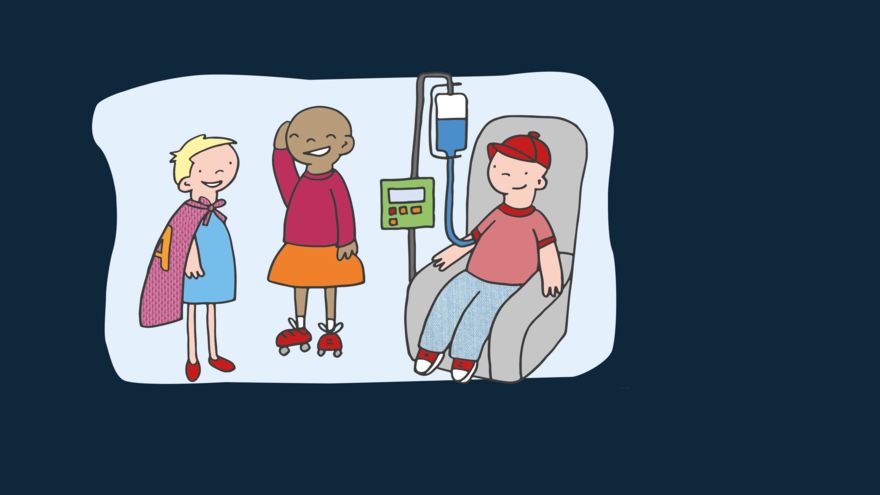An updated guide to producing health information for children and young people has been published by PIF.
The 2020 Guide to Producing Health Information for Children and Young People focuses on the practical aspects of creating good health information.
Key areas include involving children, choosing the right format, writing for children and tackling sensitive issues.
It features topical case studies on communicating with children about COVID-19 and other health issues.
The 2020 update also provides new guidance on digital, mental health needs and working with children at risk of violence.
It covers the use of stories and play, social media and apps, how and when to give information, use of schools, and the internet as channels and communications for children with disabilities and special needs.
Experts from child psychiatry, leading children’s health charities and Barts Health NHS Trust helped develop the guidance.
It is split into five main sections, supported by practical tips, case studies and links to further resources:
- Why the right information matters
- Involving children and young people
- Communicating health information
- Creating high quality information
- Where to learn more
A right to health information
Kath Evans, Chair of the Expert Panel, said: “Children and young people tell us repeatedly they want to be involved in making choices and decisions about their care.
“Health issues can be scary; good information reduces anxiety and increases confidence.
“My experience as a children’s nurse has shown me that access to sensitive, accurate, accessible and well-timed information makes the world of difference to physical and emotional wellbeing, helping put them in control, resulting in better outcomes.”
Sophie Randall, Director of PIF, said: “Children and young people have a right to health information. This is the third update to one of our most popular, practical guides.
“We are grateful to NHS England for providing funding for this important work, to the expert panel for contributing their time and expertise and to our members for contributing such inspiring case studies.”
Case studies
The guide includes the following good practice examples, many of which were contributed by PIF members:
- Support for children with a critically ill parent – ICUsteps
- Comforting children scared by the COVID-19 pandemic – Bupa UK
- Benefits of evaluation – Barts Health NHS Foundation Trust
- Improving access to healthcare for autistic children and young people – Ambitious about Autism and Whittington Health NHS Trust
- My Life: A friendly way to learn about type 1 diabetes – Diabetes UK
- Young people informing young people about COVID-19 – Barts Health Youth Empowerment Squad
- Self-help support for teenagers with low mood and anxiety – WYSA
- Gentle learning for children affected by motor neurone disease – The MND Association
- Putting health information into the hands of children and young people – Xploro Health
- My Gran has Parkinson’s – Parkinson’s UK
- Health and wellbeing resources for schools – Monkey Wellbeing
- Helping children to deal with hair loss – Children’s Cancer and Leukaemia Group
- Epilepsy Space website – Epilepsy Action
- Embers the Dragon, a digital animation to enhance child development – Digital Mentality
- Your Stance Zero Responder Workshop – Barts Health NHS Foundation Trust
Expert panel
The guide was reviewed by an expert panel including:
- Kath Evans, Director of Children’s Nursing/Chair of the Children’s Board, Barts Health NHS Trust.
- Lucy Bray, Professor in Child Health Literacy, Edge Hill University.
- Michael Carver, Lead Nurse for Violence Reduction, Barts Health NHS Trust.
- Wendy Nicholson, Deputy Chief Nurse Children, Young People and Families, Public Health England.
- Dr Knut Schroeder, Freelance GP; Founder/Director, Expert Self Care Ltd; Honorary Senior Clinical Lecturer in General Practice, University of Bristol.
- Emma Selby, clinical nurse consultant in mental health; Director of Digital Mentality.
- Tom Bishop, Senior Patient Services and Information Manager, Anthony Nolan.
- Sophie Randall, Director, Patient Information Forum.

